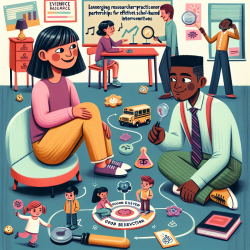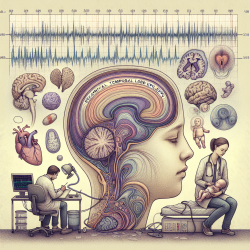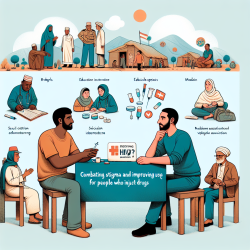Introduction
In the face of a global pandemic, the obligations of justice become paramount. The research article "Justice, Well-Being, and Civic Duty in the Age of a Pandemic: Why We All Need to Do Our Bit" by Johan C. Bester provides a comprehensive framework for understanding the societal responsibilities during such crises. As practitioners in the field of speech-language pathology, it is essential to integrate these insights into our practice to enhance outcomes for children and contribute to the broader societal effort.
Understanding Justice and Well-Being
The article argues that a just society is one that protects the well-being of its members, especially during a pandemic. This is grounded in theories of justice that connect well-being with justice, such as those proposed by Powers and Faden (2006) and Rawls (1971). These theories suggest that society must ensure a minimum level of well-being across dimensions like health, security, and self-determination.
Implications for Practitioners
As practitioners providing online therapy services, particularly to schools, we are uniquely positioned to support children’s well-being during these challenging times. Here are some actionable steps based on the research:
- Adapt Therapy Approaches: Utilize data-driven methods to tailor therapy sessions that address the unique challenges posed by the pandemic. This includes focusing on mental health and social interaction skills, which are critical during times of social distancing.
- Collaborate with Institutions: Work closely with educational institutions to ensure that the therapy services provided are aligned with the broader educational and well-being goals. This collaboration can help mitigate the impact of the pandemic on children's education and development.
- Promote Well-Being: Encourage practices that enhance well-being, such as mindfulness and resilience-building activities. These can be integrated into therapy sessions to help children cope with the stress and uncertainty of the pandemic.
Encouraging Further Research
While the article provides a solid foundation, there is always room for further research and exploration. Practitioners are encouraged to engage in ongoing research to explore new methods and strategies that can be employed to support children during and after the pandemic. This could involve studying the long-term effects of online therapy or developing new interventions that address emerging challenges.
Conclusion
The COVID-19 pandemic has highlighted the need for a coordinated societal response to protect well-being. As practitioners, we have a crucial role to play in this effort. By integrating the insights from Bester's research into our practice, we can contribute to a just society that supports the well-being of all its members, particularly children.
To read the original research paper, please follow this link: Justice, Well-Being, and Civic Duty in the Age of a Pandemic: Why we all Need to Do our bit.










